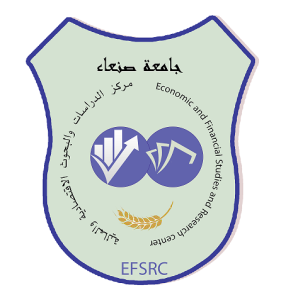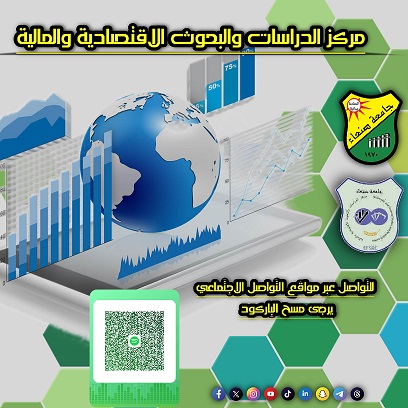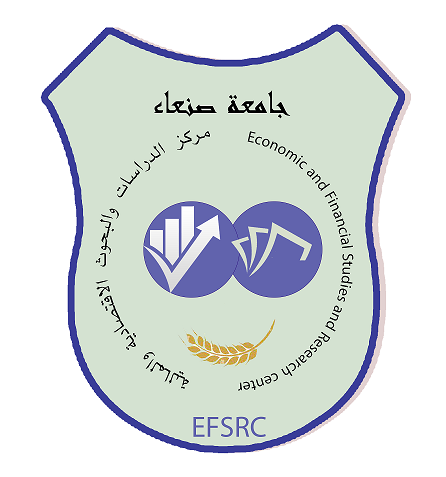PhD Program in Economics
Economic and Financial Studies and Research Center (EFSRC)

Program Description:
The Economic and Financial Studies and Research Center is adopting the opening of a PhD program in Economics, which aims to provide students with everything they need scientifically within the scope of their specialization. In addition, all students will be provided with scientific and practical skills that are appropriate to the current and future needs of the local and international labor market. Students who are academically outstanding will be supported and prepared for education in their specific field of specialization in the PhD program to achieve these goals. The program will rely on a scientifically competent teaching staff with advanced academic ranks. Modern scientific technologies will be used in the fields of research, and a guidance plan will be adopted for students to ensure that students acquire scientific knowledge within the field of specialization. Continuous attention will be given to applied research as an essential part of the graduation requirements. There will also be continuous periodic follow-up and review, and keeping up with modern studies in the field of economics in accordance with the need to keep up with continuous scientific and global developments. In addition, students will be involved in scientific seminars and will follow up on modern theories in economics to develop their scientific and practical experiences, abilities, and capabilities.
Vision
Leadership and excellence in education, learning, scientific research, and community service, aiming to be one of the leading centers at the local and regional levels in the fields of economic and financial research, training, and providing consultations
Mission
Preparing and qualifying specialized scientific and research cadres in economics to achieve quality and efficiency, and to meet the needs of financial institutions, government entities, and insurance companies in the local and regional markets.
Vision
The program aime to achieve the flowing objectives:
1. Enhance knowledge of fundamental concepts and theories in economics among program participants.
2. Develop and improve researchers’ scientific capabilities and practical skills in the field of economics.
3. Familiarize researchers with various modern economic developments relevant to their specialization.
4. Adopt high-quality, innovative teaching methods that keep pace with contemporary advancements.
5. Strengthen analytical, creative, and critical thinking abilities of participants in the program.
6. Develop participants’ skills in technology related to economic sciences.
7. Enhance participants’ abilities to integrate theoretical knowledge with practical applications in economics, while boosting both knowledge and required skills.
8. Improve participants’ skills in using research tools to prepare and present reports and studies to decision-makers in government institutions, financial entities, and the private sector.

Graduate Qualifications:
The student must prepare and discuss a scientific thesis worth (42) credit hours.
Graduate Qualifications:
1. Possesses extensive knowledge in their field of specialization.
2. Has practical skills relevant to their area of expertise and future work.
3. Capable of applying human or managerial knowledge to develop and enlighten the community and solve its problems.
4. Respects the ethics of their profession and the laws governing its practice.
5. Able to utilize modern technologies and apply them in their work.
6. Has a comprehensive Islamic culture and awareness of national, Arab, and Islamic issues.
7. Upholds values of national belonging, work, and virtue.
8. Demonstrates positive work skills, collaboration, teamwork, responsible leadership, ethical commitment, self-confidence, self-reliance, and sound decision-making abilities.
9. Capable of acquiring another language relevant to their specialization.
10. Exhibits critical thinking skills, scientific research abilities, and a commitment to continuous self-learning.
11. Possesses time management, crisis management skills, and the ability to handle work pressure.
12. Able to gather information from its sources, analyze and apply it, and present it systematically and in clear scientific communication
Admission Requirements:
The student must hold a master’s degree from a recognized university in economics, financial and banking sciences, finance and banking, accounting, agricultural economics, public administration, business administration, or local development management with a “Good” grade, or in other related fields as defined by the admission regulations of the program.
The program requires an additional research publication (third) for applicants who do not hold a master’s degree in economics, financial and banking sciences, or finance and banking before starting their thesis research.
Additionally, the student must obtain a certificate of proficiency in English from the Language Center at the University of Sana’a and demonstrate proficiency in computer skills from the Computer Center at the University of Sana’a during their study period (graduate studies requirements).
